I'm trying to achieve what is described here: https://www.prestonlamb.com/blog/rxjs-cache-and-refresh-in-angular
In other words, I want to cache an observable, during a given time (let's say 1minute). When a subscription is made after that given time, data should be retrieved again and cache again for 1 minute.
Example of the expected result:
T 00:00: Request (1) => RETRIEVE data
T 00:10: Request (2) => data from cache
T 00:35: Request (3) => data from cache
T 00:50: Request (4) => data from cache
T 01:10: Request (5) => RETRIEVE data
T 01:15: Request (6) => data from cache
T 01:30: Request (7) => data from cache
T 02:30: Request (8) => RETRIEVE data
The shareReplay operator is working fine to cache data for a given time, but I'm not able to re-launch it when that given time is elapsed.
Example using shareRelay(1, 1000) operator:
T 00:00: Request (1) => RETRIEVE data
T 00:10: Request (2) => data from cache
T 00:35: Request (3) => data from cache
T 00:50: Request (4) => data from cache
T 01:10: Request (5) => no response
T 01:15: Request (6) => no response
T 01:30: Request (7) => no response
T 02:30: Request (8) => no response
The link above try to change that behavior using first operator catching null results. Unfortunately, it's not working fine as data is not cached after the first time.
Here's what I've got using the article of the above link (following picture is describing the code used)
Result I've got:
T 00:00: Request (1) => RETRIEVE data
T 00:10: Request (2) => data from cache
T 00:35: Request (3) => data from cache
T 00:50: Request (4) => data from cache
T 01:10: Request (5) => RETRIEVE data
T 01:15: Request (6) => RETRIEVE data
T 01:30: Request (7) => RETRIEVE data
T 02:30: Request (8) => RETRIEVE data
I've also seen some example with the timer operator, but in that cases, data is retrieved every minute, even if there is no subscribtion on it. I do not want to refresh data every minute, I want to expire cache every minute. Unfortunately, I've lost the code with the timer operator, but the result was something like that:
Result with timer operator:
T 00:00: Request (1) => RETRIEVE data
T 00:10: Request (2) => data from cache
T 00:35: Request (3) => data from cache
T 00:50: Request (4) => data from cache
T 01:00: NO REQUEST => RETRIEVE data
T 01:10: Request (5) => data from cache
T 01:15: Request (6) => data from cache
T 01:30: Request (7) => data from cache
T 02:00: NO REQUEST => RETRIEVE data
T 02:30: Request (8) => data from cache
Anyone with a "pure" RxJS solution to do what I want?
